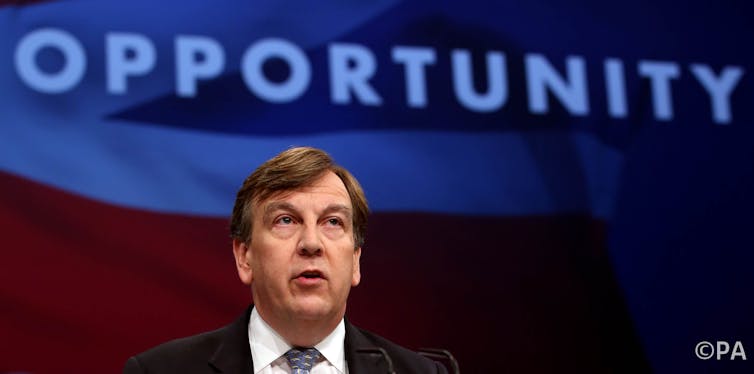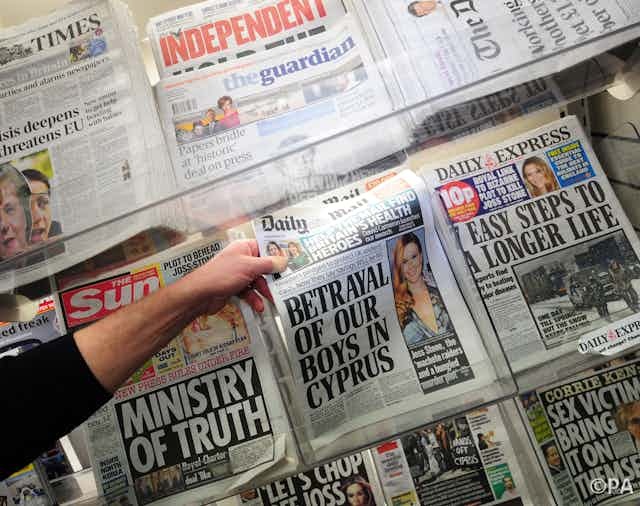For anyone who cares about journalism in Britain, this November is hugely significant. It could mark a new era of genuinely effective press self-regulation which will both shore up vital public interest and watchdog journalism and protect ordinary people from mistreatment by powerful news publishers.
But it could also be the beginning of something altogether more sinister: an abject capitulation by a craven government to the unelected power of press barons. This requires explanation, because the truth has become mangled by deliberate and self-interested misreporting in the press.
Cause for celebration?
First, the optimistic scenario. In March 2013, parliament endorsed a historic cross-party agreement to implement the core recommendations of the Leveson Inquiry through a Royal Charter. They were moderate proposals, following principles which had already been established for upholding standards in the legal profession: self-regulation – but with a backstop body recognised in law to monitor the self-regulators and ensure that they were effective and genuinely independent.
The concept was simple: the public should have faith that any self-regulator set up by news publishers would actually do what it said on the tin – unlike the discredited and now retired Press Complaints Commission.
This approach has been interpreted by some as state censorship. Recently on this site, Tim Crook called the new framework “a form of quasi state licensing of the regulation of content by newspaper and online publishers”. He is mistaken – this kind of pre-publication interference is expressly forbidden under the charter. Clause 17 of the Recognition Criteria explicitly states: “The Board [of the self-regulator] should not have the power to prevent publication of any material, by anyone, at any time”. It could not be any clearer.
It’s now a year since that backstop body, the Press Recognition Panel (PRP) was established – and on September 10, the PRP declared it was open to receive applications for recognition from self-regulators.
This one-year anniversary is significant because it triggers one of two key incentives. As of November 3, any news publisher which belongs to a recognised self-regulator is protected from the risk of exemplary (and potentially large) damages in libel and privacy cases.
Again, this has been misinterpreted as imposing a “chilling” penalty on those who choose to stay outside the recognition system. But the threshold for exemplary damages is almost impossibly high: a publisher must have shown “a deliberate or reckless disregard of an outrageous nature for the claimant’s rights”. So while the new framework may have been activated, its effectiveness will so far be muted.
Access to justice
Far more important is the second incentive, which lies at the heart of the new structure. For decades, powerful news publishers threatened ordinary people seeking legal redress with potentially ruinous court costs. But now a recognised self-regulator must offer a system of low-cost arbitration for anyone who believes they have a libel or privacy claim against a publisher. If the publisher is not part of a recognised self-regulator and therefore forces those claimants to court, it must bear both sides’ court costs itself even if it wins the case. It is a very simple principle: access to justice for ordinary people who do not have deep pockets.
But equally importantly, it is a principle that protects ambitious watchdog journalism too. Small publishers, such as new investigative start-ups or hyperlocal sites, which join a recognised self-regulator are protected from the threat of potentially ruinous court costs by wealthy and powerful individuals (or corporations) trying to prevent publication of awkward stories.
So anyone trying to frighten publishers off will have to take their case to low-cost arbitration once the story is published. If they insist on going to court – as they are entitled to do – the court can order them to pay both sides’ costs even if they win. Far from chilling investigative journalism, this incentive does precisely the opposite: it actually safeguards journalism that holds power to account.
A craven government
And now, the sinister part. The court costs incentive only comes into force when it is “commenced” by the secretary of state. And in an astonishing act of apparent political sabotage, the culture secretary, John Whittingdale, announced at the Society of Editors conference two weeks ago that he might delay it. As he well knows, without the court costs incentive, the whole recognition process becomes virtually pointless.

A cabinet minister, it appears, can unilaterally overturn a historic cross-party agreement ratified by parliament as well as the prime minister’s solemn pledge to the victims of press abuse that he would implement Leveson’s recommendations unless they were “bonkers”.
Cameron – and indeed Whittingdale – supported the Charter and associated legal framework in parliament. But that was before their friends in the press launched a ferocious assault on their political opponents in the run-up to an election which few expected the Conservatives to win. This looks increasingly like a grubby and opportunistic payday for the media barons who they believe won them the election.
If that turns out to be true, it is not only the victims of press abuse who have been shamelessly betrayed. So has the watchdog journalism which our press laughably purports to defend.

